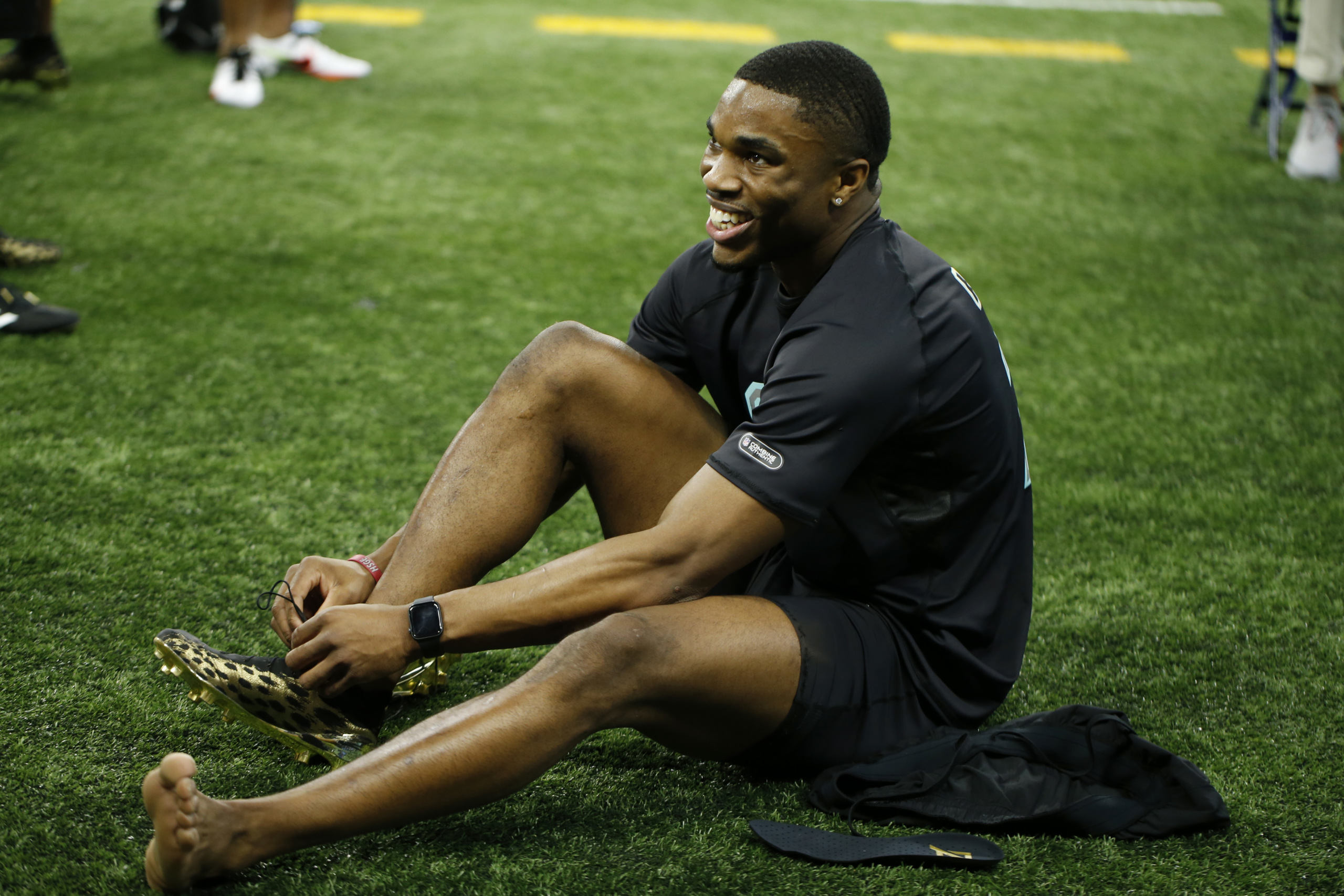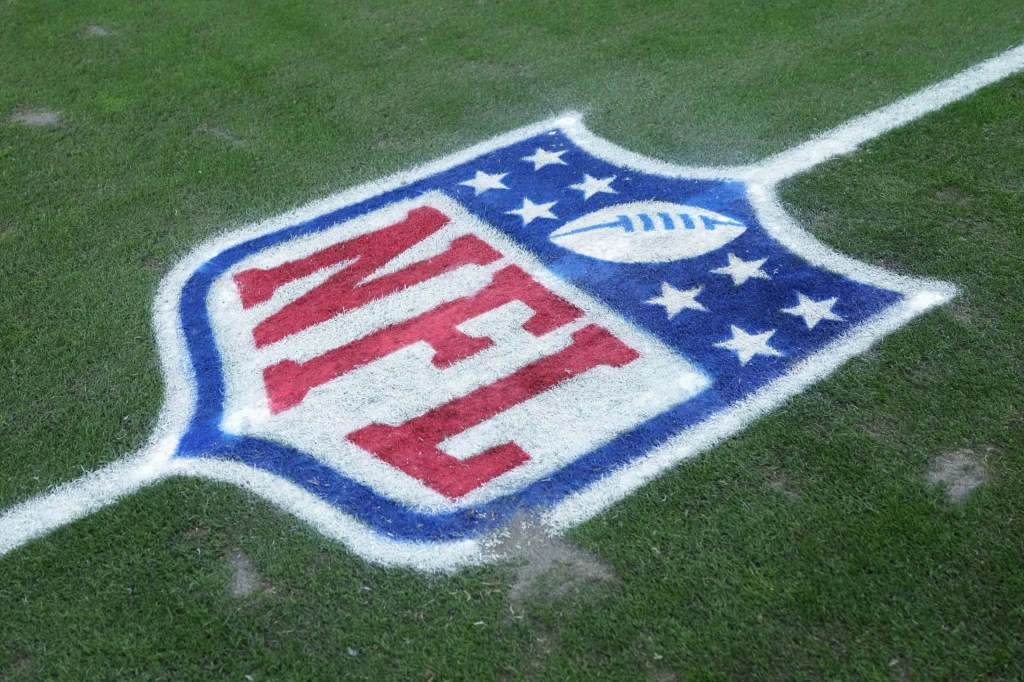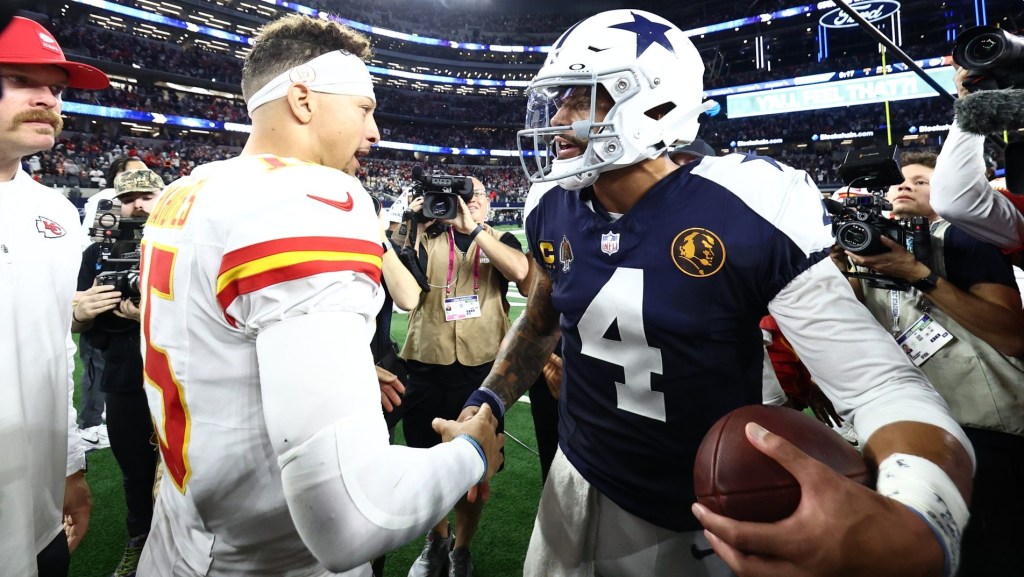The NFL is expanding its College Outreach Program, which aims to help prepare collegiate student-athletes across the country for all that comes after college – whether that means a professional career in football or not.
In conjunction with software platform Game Plan, which works with athletic organizations to deliver online education, the league added a new customized eLearning curriculum to the program. The curriculum provides college football teams with year-round, on-demand opportunities for continued education and growth to meet college players in their current career stage and prepare them for the future.
“We hope that all student-athletes who take these courses benefit from the curriculum,” Roman Oben, NFL vice president of youth and high school football strategy, said. “There are sessions that focus on [aiding] in the transition to the league, but there are also modules about maximizing resources on campus and how the values learned from playing the game of football – dedication, teamwork, and leadership – translate to a successful life off the field.”
The focus is on both personal and professional skill-building opportunities that will benefit players during and after their playing experience. But the curriculum isn’t only designed to target future prospects. The courses were designed with input from college programs and players to help prepare student-athletes for all future possibilities.
“The NFL has had a longstanding relationship with colleges across the country,” Oben said. “As we continue to evolve how to best serve the student-athlete, we consulted with college athletic administrators, student-athletes, NFL executives and players to design a well-rounded curriculum that enhances their skillset professionally and personally.”
Much of the curriculum mirrors information the NFL has attempted to deliver to potential prospects since 2010, when the league started sending ambassadors to colleges for in-person presentations and information sessions. Since then, more than 50 in-person visits per year were made by ambassadors to inform and educate collegiate football student-athletes. For those who do try to turn pro, the program’s online curriculum includes courses on NFL Combine preparation, the NFL Draft evaluation, and scouting process.
READ MORE: Consensus Hard To Come By Around Student-Athlete NIL Opportunities
“The more [players] know about college and the process, the better prepared they are when they come to the NFL for those few that do make it,” Oben said. “We know that kids who actually stay through college and don’t leave early and develop more at the college level go on to have longer careers in the NFL and transition better. So we’re trying to make sure that those players have all the information they need about making those decisions directly from the source, rather than having to go through agents or third parties or whoever else.”
The NFL’s new online offerings hope to reach a much wider collegiate audience than before. The eLearning platform is available to all 130 Division I FBS college football programs across 10 conferences – the majority of whom the NFL did not previously visit in person.
Thirty-five schools committed to providing this curriculum to their football programs within the first week of its announcement, including teams from four of the Power Five conferences. LSU, Florida, Oregon, USC, Michigan State, Clemson, Cincinnati, and more will all use the new courses to educate their student-athletes.
“That was 35 in a week,” Oben said. “We fully expect most schools to start taking advantage of this information so they can best prepare their players. The eLearning platform enables us to reach programs we may have not had the opportunity to visit in person in the past. It’s not just the biggest programs now who have access to this, but the hope is that this information reaches more players this way.”
The NFL’s new digital courses could also serve to supplement existing preparatory programming within some college football programs.
For example, Oklahoma’s Lincoln Riley instituted the school’s GrowU player development program soon after being promoted to head coach in 2017. GrowU focuses on leadership, professional development, personal growth, social connection and community service. The school’s football staff invests in each of these areas regularly already to ensure its student-athletes successfully transition to life after college, football-related or not.
“Whether they’re going to go on into the NFL or life after football, they go from being in a college environment where everything is completely structured from the time they get up to the time they go to sleep to a life where you’re much more free to do what you want to do,” Andy Frank, Penn State’s director of player personnel, said. “If they go to the NFL, they’ll have a team schedule and whatnot, but so much more is still up to the player about what they do to be the best they can be.”
Penn State’s Fifth Quarter Program includes workshops, career fairs, money management lessons, job interviewing, time management, and more transitional skills that apply to all of the school’s football student-athletes.
The NFL also added ‘Rookie Success Programming’ for newly selected and undrafted NFL newcomers. This onboarding platform provides a range of educational resources to aid in a successful transition to the league as a professional. In collaboration with each club, NFL staff will educate rookies about available resources, league expectations, programs, benefits, player policies, financial education, social responsibility, media training, and the particulars of their club through another set of eLearning courses.
These courses aim to help answer questions that many college coaches and advisors hear from their players after they’ve left the program.
READ MORE: Big 12 Commissioner Says Football Decisions Must Be Made ‘Between Early June And Late July’
“We hear back from a lot of our players who go pro when they’re trying to figure out time management or how to handle money or other related things,” Frank said. “The reality is, if you’re not drafted in even the first round, the amount of money you’re making early on in your career, while it can be life changing, if you’re not smart, it’s not nearly as much as people think it is. But we also hear back from guys who don’t go pro about how different things are from them. So it’s really important for us to try and prepare them for all possibilities.”
That preparation will continue to happen at the college level alongside this new NFL offering.
“The NFL has done information sessions and rookie workshops for a number of years, and colleges are no different,” Frank said. “We’re all stressing those transitional things, but there are still some unintentional gaps [in information] for players. And eLearning is a new initiative to try and help on a bigger scale, but [there are] still big questions like: ‘How do you go from not making any money to getting a paycheck of millions of dollars?’ And also realizing that money can be gone almost immediately. No matter how much instruction you get, I don’t know that anyone will necessarily be ready for that scenario.”
Even without all the answers, the NFL hopes their two-pronged educational approach will help fill even a few more of those gaps. Oben added that while the two tracks offer different courses, there is “alignment in the delivery and formatting” so that college athletes who do go on to play professionally in the league are already familiar with the platform and eLearning programming the league then passes their way as rookies.
The entire system has been designed to ensure a smooth transition – from the curriculum to the technology itself – to life in football and beyond.






![[Subscription Customers Only] Jun 15, 2025; Seattle, Washington, USA; Botafogo owner John Textor inside the stadium before the match during a group stage match of the 2025 FIFA Club World Cup at Lumen Field.](https://frontofficesports.com/wp-content/uploads/2026/02/USATSI_26465842_168416386_lowres-scaled.jpg?quality=100&w=1024)
![[Subscription Customers Only] Jul 13, 2025; East Rutherford, New Jersey, USA; Chelsea FC midfielder Cole Palmer (10) celebrates winning the final of the 2025 FIFA Club World Cup at MetLife Stadium](https://frontofficesports.com/wp-content/uploads/2026/02/USATSI_26636703-scaled-e1770932227605.jpg?quality=100&w=1024)









